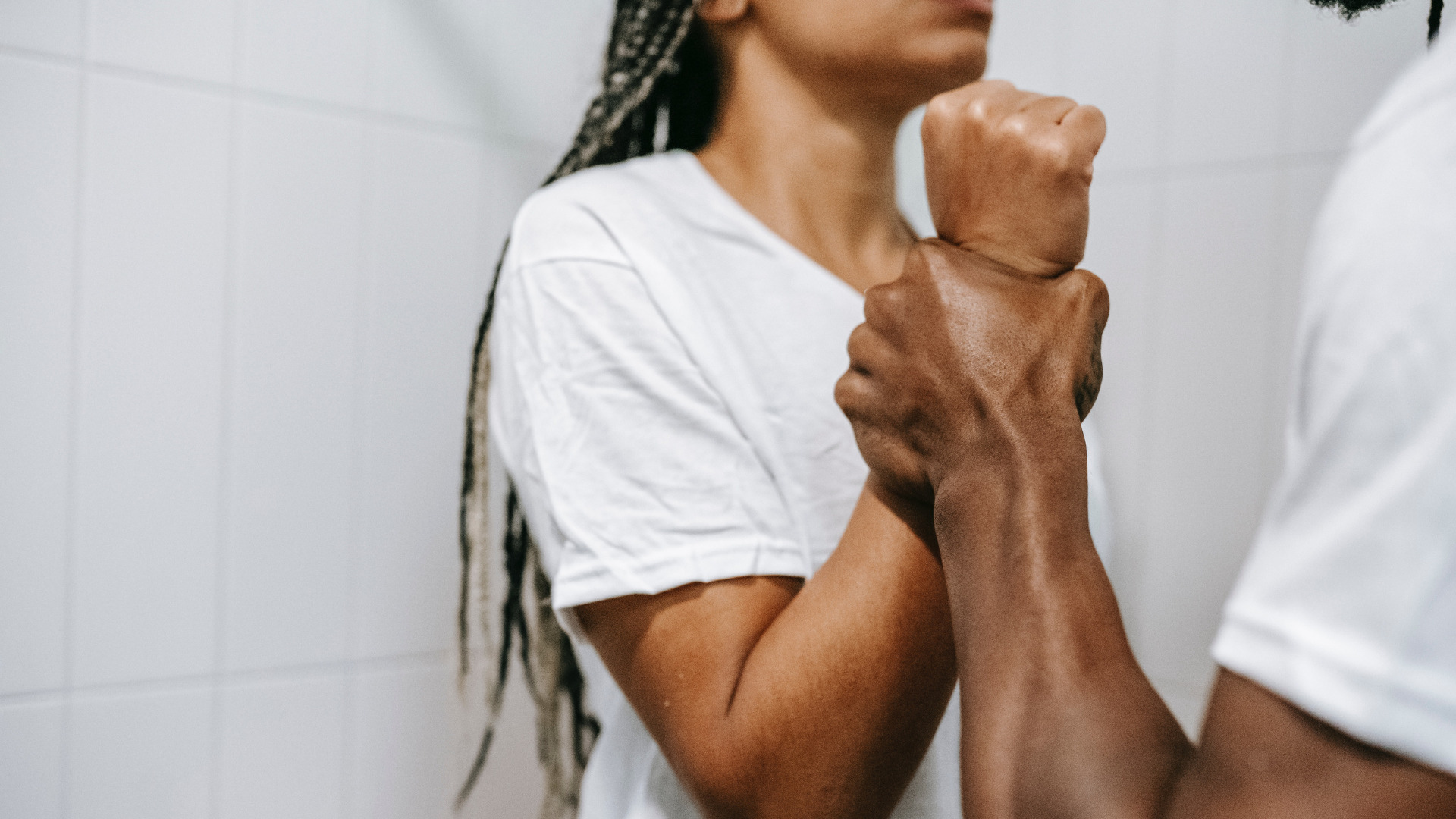In the collective imagination, the victim of domestic violence is a beaten adult woman with children who are also victims. However, domestic violence is not just about beatings, and the victims are not just mothers. Poorly informed, too little supported and even less listened to than their elders, young women and adolescents go completely unnoticed.
“I was with a guy who was a great athlete, a semi-professional rugby player, very muscular […]. Since I was the fat kid in high school, I was very surprised that he agreed to date me.”, recalls Laetitia, now thirty years old. If this first story initially seems idyllic for her, the relationship gradually takes another turn: “He monitored my diet. I had to send him photos of everything I ate. When we were at the restaurant he was the one who chose my dishes. » These behaviors, which Laetitia now describes as grossophobic, also resemble domestic violence.
Why is domestic violence among teenagers discredited?
Humiliation, blackmail, sexual, physical or verbal violence, coercive control… A survey carried out in 2021, on a panel of approximately 3,000 young women aged between 12 and 24, significantly found 9 out of 10 victims of domestic violence during their adolescence and young adult life. To fight against this worrying phenomenon, Ynaée Benaben co-founded the association Forward ten years ago. He explains why the violence faced by teenage girls is so discredited: “First love is seen in society as something beautiful, naive, unimportant at that age. Actually, Being under 25 means being vulnerable, it is a moment of breaking, of distancing, where you can be particularly isolated. We need to prove things to ourselves, we will be more resistant to asking for help. »
Through the creation of an online chat, accessible every day except Sunday, 13 employees of the association take turns to respond to more than 6,000 requests every year: “We understood very early that if the girls didn’t approach the existing structures, it was because they didn’t speak to them, neither in the systems nor in the advertising campaigns. Calling is scary, while we write constantly, so the chat seemed more suitable to me”analyze.
A problem that also affects young LGBTQI+ people
If most of the victims are young women living in heterosexual relationships, the director of the association notes an increase in requests from LGBTQI+ young people: “It is a public that also suffers other types of violence, which is sometimes even more isolated, rejected by those around it and with few people to confide in. » In addition to the chat, explanatory articles on the relationships are available on the association’s Comment on s’aime website.
More than necessary resources that Nora would have liked to have found, at the time when she was dating a girl, who nevertheless defined herself as a feminist: “It started with snide comments, then a check on my outings, my outfits. I was hypervigilant, always afraid of saying or doing something wrong and being yelled at from behind. » The relationship deteriorates rapidly, before reaching a point of no return after yet another argument in which Nora dares to express her disagreement: “Then he slammed me against the wall, then he hit me, bit me, scratched me, all night. » She then decides to leave permanently, deeply traumatized. But before this violent click: “I totally denied it, I made excuses for him, I told myself it couldn’t happen to me, to straight people yes but to lesbians no” explains.
This shame of speaking out is also what Gunter, a 28-year-old trans youth who, before coming out, had a relationship with a cis-straight guy after dropping out of high school, experienced. “We were in a town where he was starting to get a little bit known locally with his music. He was a spendthrift, he put a lot of pressure on me to buy him things, I even asked him for a loan. » While his ex isolates him, gradually bans him from seeing other people, constantly checks his computer and phone, those around him don’t notice anything: “My family loved him, his friends thought he was fantastic, we were considered a model couple. But from the inside it was hell. This guy is still trash and no one knows it. »
Take it out
For one it was a rugby player considered promising, for the second a feminist activist and for the last an aspiring rapper. If Laetitia, Nora and Gunter have each lived a different story, they all tell similar mechanisms: isolation, devaluation, inversion of the sense of guilt, threats to create fear within the couple and guarantee their impunity before the eyes of others, before end up with others even more pressing violence.
However, this cycle can be broken and loved ones, friends, families, education staff and colleagues have a real role to play. According to Ynaée Benaben: “Every year in the chat we receive 5 to 10% of questions from witnesses who want to help a loved one. » For the head of the association it is not enough to talk about it, it is also necessary to better coordinate the systems – which exist -: “We have a series of measures that exist for housing, health, employment but which are not connected, which wastes a huge amount of time. We certainly need more money, but also more cohesion between all systems, between the State and associations. »
The other fundamental aspect for her is prevention. “We cannot simply adopt palliative measures, we must tackle the problem at its root. We need to develop teaching methods and implement massive interventions among young people. It’s long term. »
If you have questions, if you think a loved one needs help, you can consult the Comment on s’aime site and chat in the chat.
If you or someone you know is a victim of domestic violence, or if you simply want to learn more about the topic:
- 3919 and the government website Let’s stop THE violence
- Our practical article My boyfriend hit me: how to react, what to do when you are a victim of violence in your relationship?
- The association Forward and its help chat available on How do we love each other?
Do you like our articles? You’ll love our podcasts. All our series, urgently listen to here.
Source: Madmoizelle
Mary Crossley is an author at “The Fashion Vibes”. She is a seasoned journalist who is dedicated to delivering the latest news to her readers. With a keen sense of what’s important, Mary covers a wide range of topics, from politics to lifestyle and everything in between.





